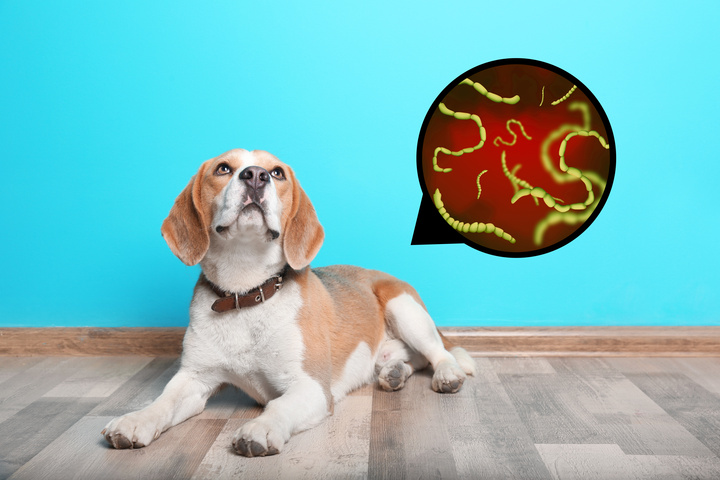The term “superfood” has no strict scientific or regulatory definition. However, it usually indicates extremely nutrient-dense foods that are thought to provide health benefits beyond basic nutrition. One such example of a “superfood” is a golden spice used for medicinal purposes since ancient times.
Turmeric is a vibrant yellow-orange spice from the rhizomatous herbaceous perennial turmeric plant (Curcuma longa). The plant is indigenous to South Asia and is a member of the ginger family. For centuries, turmeric has been used in traditional medicine and cooking, especially in Indian cuisine.
Curcumin, the active compound responsible for turmeric’s vibrant color, is more than just a pigment. It’s a potent source of health benefits thanks to its well-researched anti-inflammatory and antioxidant properties. These unique qualities have propelled curcumin into the spotlight, making it a sought-after ingredient in medicine and diet for humans and animals.
What is golden paste?
One of the best ways for humans and dogs to reap the many health benefits of curcumin is to make golden paste. Golden paste is commonly made with turmeric, black pepper, and coconut oil. The black pepper helps with the bioavailability of the curcumin, and the coconut oil supercharges the health benefits while making the mixture more palatable.
Health benefits of golden paste for dogs
Here are some ways that golden paste can benefit your canine companion.
Inflammation buster
Does your pup suffer from joint pain? If so, chronic inflammation is the driving force behind this common canine health problem. Inflammatory molecules released during the inflammatory process damage joint tissues and exacerbate pain and stiffness.
Inflammation also affects many dog skin conditions, including allergies, dermatitis, and hot spots. Allergic reactions trigger inflammation in the skin, leading to redness, itching, and irritation. Chronic inflammation disrupts the skin’s barrier function, making it more susceptible to infections and other skin issues.
Inflammation of the gastrointestinal tract can lead to conditions such as inflammatory bowel disease (IBD), gastritis, and colitis in dogs. Chronic inflammation in the gut can cause diarrhea, vomiting, abdominal pain, and poor nutrient absorption.
Curcumin exerts its anti-inflammatory effects through a combination of mechanisms, including inhibition of pro-inflammatory pathways, antioxidant activity, modulation of immune responses, interference with inflammatory mediators, and regulation of gene expression. This multifaceted approach makes it a promising natural compound for combating inflammation and supporting overall health.
Coconut oil is well known for its anti-inflammatory properties due to its high concentration of medium-chain fatty acids (MCFAs), particularly lauric acid.
This tropical treasure also contains antioxidants, such as phenolic compounds and vitamin E, which can help neutralize free radicals and reduce oxidative stress. By reducing oxidative stress, coconut oil may indirectly help mitigate inflammation, as oxidative stress triggers inflammatory responses.
Immune system booster
Dogs, like humans, need a strong immune system to protect themselves against various infectious agents like bacteria, viruses, fungi, and parasites that can cause conditions such as kennel cough, Lyme disease, parvovirus, and canine distemper. A healthy immune system plays a crucial role in identifying and neutralizing these harmful pathogens, preventing them from causing damage. If your fur baby does get sick, a robust immune system will help with recovery.
Curcumin has high antioxidant activity which helps to neutralize harmful free radicals in the body. This potent compound also modulates the activity of various immune cells, including T cells, B cells, macrophages, and natural killer cells. These immune cells play essential roles in identifying and eliminating pathogens, infected cells, and other threats to the body.
Coconut oil is also known for its immune system boosting benefits. Lauric acid has been studied for its potential antiviral effects. It may help inhibit the replication of certain viruses. Caprylic acid has also shown promise as an antiviral agent, particularly against certain enveloped viruses.
Gut health support
The gut is home to a vast and diverse community of microorganisms, collectively known as the gut microbiota. These microorganisms play a crucial role in supporting the dog’s immune system. A balanced gut microbiota helps regulate immune responses, defend against harmful pathogens, and maintain immune system function. An imbalance in the gut microbiota, known as dysbiosis, can lead to immune system dysfunction and increased susceptibility to infections and diseases.
Turmeric may help improve gut motility, promoting smoother digestion and reducing symptoms such as bloating and constipation. It can also support the balance of gut microbiota, which is crucial to digestive health.
Caprylic acid helps maintain the integrity of the gut lining. A healthy gut lining is essential for preventing “leaky gut syndrome” (yes, dogs can have it, too), a condition where the lining becomes more permeable, allowing harmful substances to pass into the bloodstream and potentially triggering inflammation and other health issues.
Basic Golden Paste Recipe
What you need
- 1/2 cup turmeric powder
- 1 cup water
- 1 1/2 teaspoons ground black pepper
- 1/4 cup coconut oil
How to make it
- In a small saucepan, combine the turmeric powder and water. Stir well to form a smooth paste.
- Place the saucepan over low to medium heat and cook the mixture, stirring constantly, for about 7-10 minutes. This helps to activate the curcumin in the turmeric.
- Add the black pepper and stir for another 1-2 minutes. Black pepper helps enhance the body’s absorption of curcumin.
- Remove the saucepan from the heat and let the mixture cool down slightly.
- Once the mixture has cooled, add the coconut oil (or your preferred oil) and stir until well combined. The oil helps increase the absorption of curcumin, as it is fat-soluble.
- Transfer the golden paste into a clean glass jar with a lid.
- Store the golden paste in the refrigerator for up to 2 weeks.
How to give your dog golden paste
When incorporating golden paste into your dog’s diet, mixing it directly into their regular food is best. However, starting with a small portion is important to avoid potential adverse reactions. For small dogs, begin with about ¼ teaspoons daily and gradually increase to 1 tablespoon daily. For larger dogs, start with ½ teaspoons daily and gradually increase to 1 tablespoon.
It’s crucial to monitor your furry friend closely for behavioral changes, loss of appetite, or digestive issues after introducing golden paste into their diet. If you notice any adverse reactions, discontinue use and seek advice from a holistic veterinarian. Consistency is key when supplementing your dog’s diet with golden paste.






